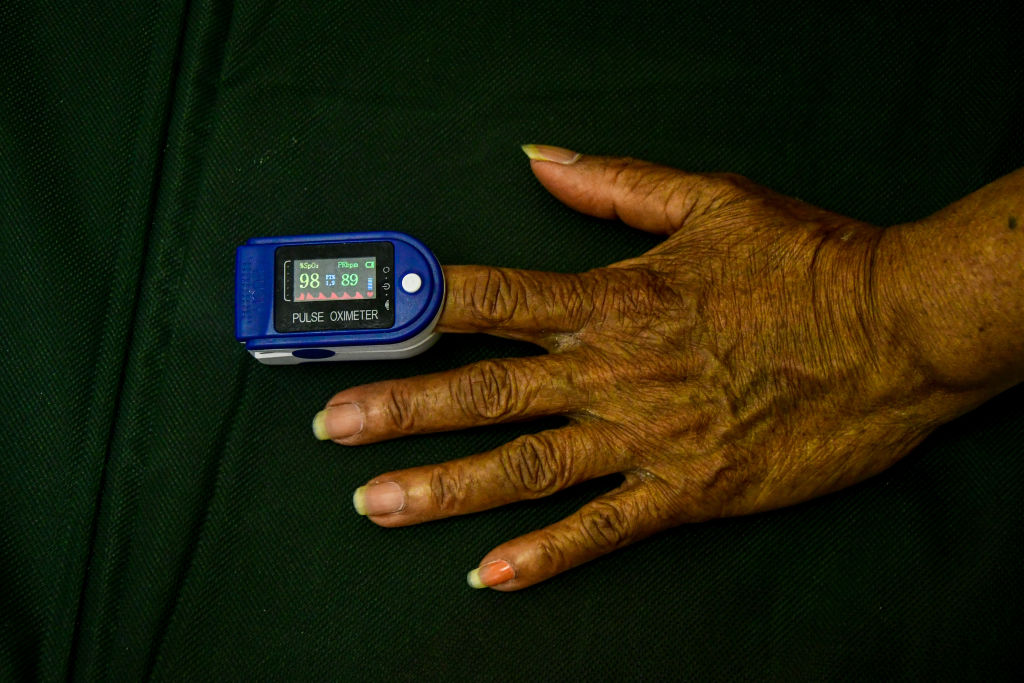Lifesaving treatment delayed for Black COVID-19 patients based on how device assesses darker-skinned people, study finds
Pulse oximeters can reportedly overestimate blood oxygen levels in people of color, making them appear healthier.
A study published in The Journal of the American Medical Association found that the distribution of potentially lifesaving therapies was significantly delayed for Black and Hispanic patients due to inaccurate oxygen readings from devices that can work poorly for darker-skinned people.
The findings were based on the efficacy of the widely-used pulse oximeter, which measures oxygen levels by assessing the color of the blood. According to STAT, which is reporting on the study, the device can overestimate blood oxygen levels in darker-skinned patients compared to white patients. It may make them appear healthier than they are — and may have been one reason behind the disparity in COVID-19 mortality rates among communities of color.

The new study is not the first to find that pulse oximeters may have inaccurately detected low blood oxygen levels in Black patients versus white ones. One study took place in 2020 during the height of the pandemic, and the Food and Drug Administration issued a safety warning two months later saying that the devices could be inaccurate for darker-skinned patients.
The JAMA study found that the inaccuracies were present in other communities of color, including Hispanic and Asian patients. Further, it noted that the inaccuracies had real-world consequences, such as delays in Blacks and Hispanics getting lifesaving treatments, like the drugs remdesivir and dexamethasone, or some patients not getting care at all.
“These are likely patients who were seen in emergency rooms and sent home,” said Tianshi David Wu, an assistant professor of medicine at Baylor College of Medicine and co-lead author of the new study, per STAT. “There are patients that probably should have had these therapies, and the majority were Black patients.”
The study included more than 7,000 patients with COVID-19, who were seen in emergency departments or admitted at five hospitals across Baltimore in the Johns Hopkins Health System. It found that Black patients were 29% less likely to have been deemed eligible for treatment as recognized by the device than white patients.
“We’ve been searching for reasons Black and Hispanic people were more likely to die early in the pandemic,” said Thomas Valley, an assistant professor of medicine at the University of Michigan. “This is pretty depressing that we had treatments available, many of those treatments tied to oxygen levels. Decisions on whether or not people were admitted to hospitals or put on ventilators, those were all based on blood oxygen levels.”
Valley, a critical care pulmonologist, called the devices’ inaccuracy a huge problem for clinical care.
“There is in my opinion only one fix,” he said. “We need pulse oximeters that work as well in Black patients as they do in white patients.”
TheGrio is FREE on your TV via Apple TV, Amazon Fire, Roku and Android TV. Also, please download theGrio mobile apps today!


